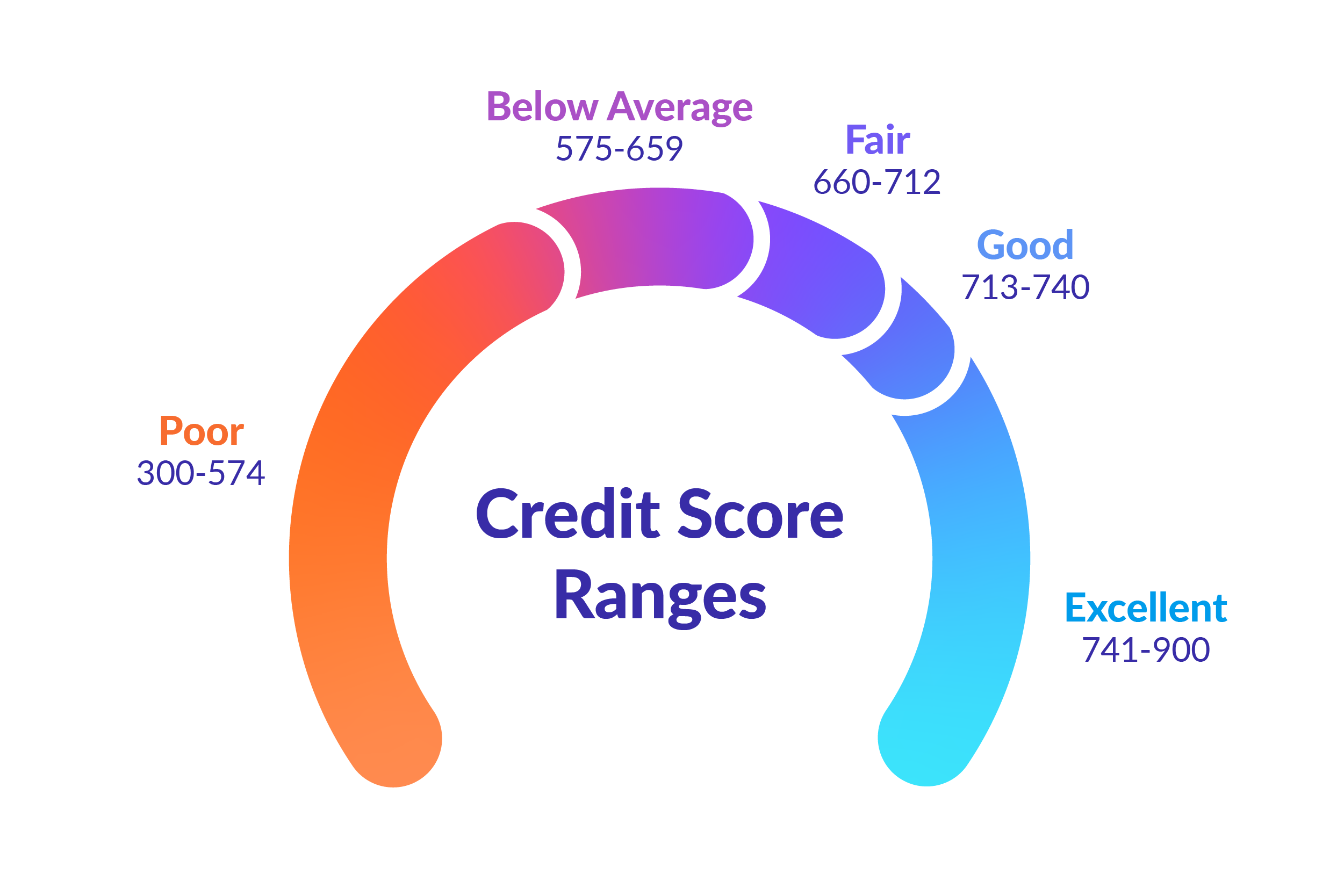What Credit Score is Needed to get a Credit Card?
Feb 16, 2021 • 8 min read

Article Contents
Applying for a credit card involves a credit check, where the lender assesses your credit score before approving you for the card. Your credit score is a number between 300 and 900, and there are several factors that contribute to this number, including your credit history, existing debt amounts, and payment history.
In Canada, a credit score of 660 is required for most credit card providers. There are many types of credit cards, and they each have a specific credit score requirement. For example, premium cards, such as travel cards or cashback cards, often require higher credit scores than standard cards. Consumers with credit scores below 660 may find it harder to qualify for premium cards and may only qualify for a limited selection of credit cards with lower credit limits.
Your credit score directly impacts the types of credit cards you can qualify for. Higher credit scores often mean better credit card perks, higher credit limits, and a greater selection of credit card lenders to choose from. You can use Borrowell to check your credit score in Canada and see which perks, limits, and lenders you qualify for with your credit score. See your chances of approval for a wide range of cards, and receive personalized tips on how to improve your credit score.
What kind of credit card can I get with my credit score?
Generally, consumers with credit scores below 660 may find it harder to qualify for premium cards and may only qualify for a limited selection of general credit cards with lower credit limits. Consumers with credit scores higher than 660 are typically eligible for credit cards with increased limits and additional perks, such as travel points or high cashback rates.
Below, we have provided a quick outline of the different credit score ranges in Canada and the types of credit cards available to consumers within each range:

741 to 900 - Excellent Credit
Consumers with excellent credit scores are very likely to be approved for most, if not all, credit cards. They will qualify for the best rewards and the lowest interest rates.
713 to 740 - Good Credit
Consumers with very good credit scores are still very likely to qualify for most credit cards.
660 to 713 - Fair Credit
Consumers with good credit scores are very likely to qualify for most credit cards but may not qualify for the lowest interest rates.
575 to 659 - Below Average Credit
Consumers with fair credit scores will likely find it challenging to receive approval for most credit cards. There are steps you can take to increase your credit score and improve your approval chances.
300 to 574 - Poor Credit
Consumers with poor credit scores are very unlikely to qualify for most credit cards and will have a limited selection of credit card options to choose from. Realistic options for consumers with this type of credit include retail credit cards, secured cards, student credit cards with lower credit limits, and prepaid credit cards.
What are other factors that influence credit card applications?
In addition to your credit score, there are several other factors that credit card lenders will look to when evaluating your application for credit. Here are some of the other main factors.
Employment Status
Your employment status, as well as the income you make, are extremely important variables for lenders when reviewing applicants. Individuals with full-time jobs will have higher chances of being approved for low interest rates and rewards. Part-time workers and entrepreneurs might not qualify for the lowest interest rates, and they might only be eligible for lower credit amounts and limited rewards options, depending on the credit card provider. Students will likely be offered student credit cards that have lower credit limits compared to premium cards.
Credit History
Lenders will also look to your credit history to examine how you have utilized previous credit accounts. For example, if you have a great credit score, but have a limited credit history or many other credit and loan debts open, your credit card may be denied. The most important factor from a lender’s perspective is determining a potential borrower’s credit tendencies; that is, is the consumer likely to repay their debt owed on time?
Credit Utilization
Your credit utilization ratio also matters to lenders. This ratio refers to the amount of credit you have used up compared to the total amount of credit available to you. If you have multiple credit card accounts with large balances on them, your credit utilization will likely be high, which is something that lenders don’t like. As a general rule, you should always aim to keep your credit utilization below 30%.
I have a good credit score, why was my application rejected?
Sometimes, even consumers with strong credit scores find their credit card applications rejected by lenders. As we noted, there are several other factors that a credit card issuer will look at outside of an applicant’s credit score.
Context for the score matters as well. For example, if a borrower has an excellent credit score, but does not have a steady source of income, they may get rejected. Likewise, a borrower may have a great credit score but several other credit cards open, along with multiple mortgages and loans. In this type of scenario, the individual may get denied for an additional credit card in their name. If you have many credit accounts open, lenders may be worried that you're stretching yourself too thin and won’t be able to make regularly scheduled payments on-time.
What are my credit card options if I have bad or no credit?
Consumers with credit scores below 660, or with a limited credit score will find it challenging to be approved for most premium credit cards. However, there are still options available for individuals with bad credit. There are also ways to build credit without a credit card, so that you can eventually qualify for premium cards in the future. Some of the options available to borrowers with bad or limited credit are listed below:
Credit Builder Cards
Credit builder cards help individuals with low credit scores build their credit history in a safe, sustainable, and manageable way. If you have low credit, this can help you improve your credit score and qualify for more financial products in the future.
Retail Credit Cards
Retail credit cards involve a retailer (such as Walmart, Canadian Tire, or The Bay) partnering up with banks or other financial networks to provide a credit service. These types of cards are an excellent choice for consumers with bad or no credit. Retailers often allow consumers with lower credit scores to apply for these products—sometimes not checking credit scores at all. At the same time, these cards are combined with loyalty reward programs for consumers who can maintain the card in good standing. However, it is important to note that interest rates with retail credit cards are typically high.
Student Credit Cards
Student credit cards are an excellent choice for individuals enrolled in a full-time course of study because they have very limited qualification restrictions. While credit limits for these types of cards are low compared to premium cards, they are a great way to quickly build credit.
Prepaid Credit Cards
Prepaid credit cards operate under the principle that borrowers will only be able to spend the money they currently have on the card. That is, cardholders are required to “load” money into the card before it can be used. While prepaid credit cards will not help build your credit, they can help you stick to a budget and live “within your means'' when it comes to spending.
Secured Credit Cards
Secured credit cards are unique in that cardholders are required to provide a set deposit into their accounts, which then becomes the credit limit granted for use. Unlike prepaid credit cards, secured credit cards qualify as credit products and can be used to build or repair credit.
Bottom Line
While there isn’t a clear-cut number that determines your ability to qualify for a credit card, a credit score of 660 is typically satisfactory for most lenders. Consumers with credit scores below 660 may find it harder to qualify for premium credit cards and may only qualify for a limited selection of credit cards with lower credit limits.
However, a strong credit score is not the only factor that a potential lender will look at when evaluating your credit card application. Your income level, income consistency, credit history, and credit utilization rate also play a crucial part in the approval process. For example, if an individual has an excellent credit score, but has opened many other credit cards and loans in their name, they may get rejected for certain types of credit cards due to a poor credit utilization rate.
Individuals with poor or limited credit have several options they can choose from if they are not eligible for a traditional credit card. These options include credit builder cards, retail credit cards, pre-paid credit cards, student credit cards, and secured credit cards – all excellent choices when looking to rebuild or establish your credit score.
Getting a credit card is an important part of establishing your credit history or rebuilding your credit score. Keeping a credit card and making timely and consistent payments shows lenders that you are a reliable borrower who can pay your debts on-time. This can help you improve your credit score and will help you qualify for lower interest rates on financial products in the future.

Gaurav is a senior communications consultant in the executive recruitment industry, focusing on financial services. He enjoys creating educational content related to credit health and personal finances for Borrowell. Gaurav has a passion for conveying complex messages in an impactful way, and graduated with Honours from the University of Waterloo with a degree in Rhetoric and Professional Writing.


